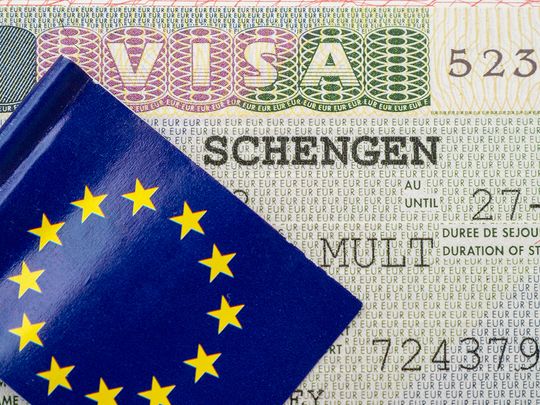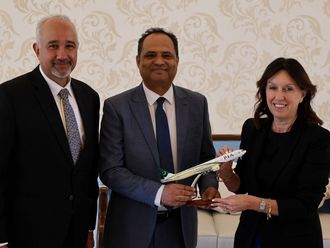
Digitalisation is the key to easing travel to Europe, Teodora Marinska, Chief Operating Officer and Head of Public Affairs at the European Travel Commission, said on Monday. The new bill to render the Schengen visa application fully digital is a positive development that will ease and speed up the process as frequent travellers won’t be required to go in person, she added.
Addressing a session on the Arabian Travel Market titled Strengthening Inter-Regional Travel: Learnings from Europe, Marinska said: “In Europe, we have the world’s largest passport-free travel area, the Schengen area. And it’s the perfect backbone for the development of inter-regional tourism. And the big and fast rebound after the pandemic was mainly due to the internal or inter-regional tourism.”

The Schengen visa, required to visit most European countries, has been fraught with frustrating delays in getting an appointment. Marinska said this was because people tend to apply to certain countries where a Schengen visa is easier to obtain. “You can apply for a Schengen visa in any consulate. But we see that people apply at the same consulate because they know the procedure is more lean and easier. So what the European Union is trying to do is to digitalise the process.”
More from ATM 2024
- ATM 2024: Dubai will keep filling its hotel rooms whatever the supply
- ATM 2024: Digitalisation will ease Schengen travel woes, says European travel official
- ATM 2024: Saudi carrier flynas expands UAE operations, adds Sharjah, Abu Dhabi, DWC to network
- ATM 2024: Emirates signs deals with Malaysia, Turkey, Abu Dhabi
- Schengen-style GCC tourist visa: ‘GCC Grand Tours’ visa soon to allow visitors to travel in UAE, Saudi Arabia, Kuwait, Oman, Bahrain and Qatar for over 30 days
She said digitalisation will be a game-changer. “Digitalisation is key here. And I think that we have the tools to have a super seamless travel experience for people very soon with just the digital visa,” Marinska said, adding, “We need to make sure is that at the border, this works properly. So we avoid delays. And it also doesn’t put additional burden on transport operators”.
The Schengen visa has been a huge success and is a model for others to follow, said Marinska, who drives forward the European Travel Commission’s mission to promote Europe as a premier travel destination. “What comes first always [in Schengen policies] is the security component. And this is a pitfall also because it overlooks some of the major European values, such as free movement and the economic benefits of travel.”
The Gulf Cooperation Council has to be aware of this if they wish to use the Schengen learnings, the European Travel Commission official said. “When you design your border policies and checks, make sure you think of the customer first. So think through the eyes of the traveller, make it as easy as possible for the traveller, and then solve all the security issues behind it. So when you consider the traveller perspective, it will also streamline all the processes needed to make it work better.”
Marinska said, “The tourism environment is extremely dynamic; things evolve very fast. So any system we have in place needs to be able to change very quickly.”











